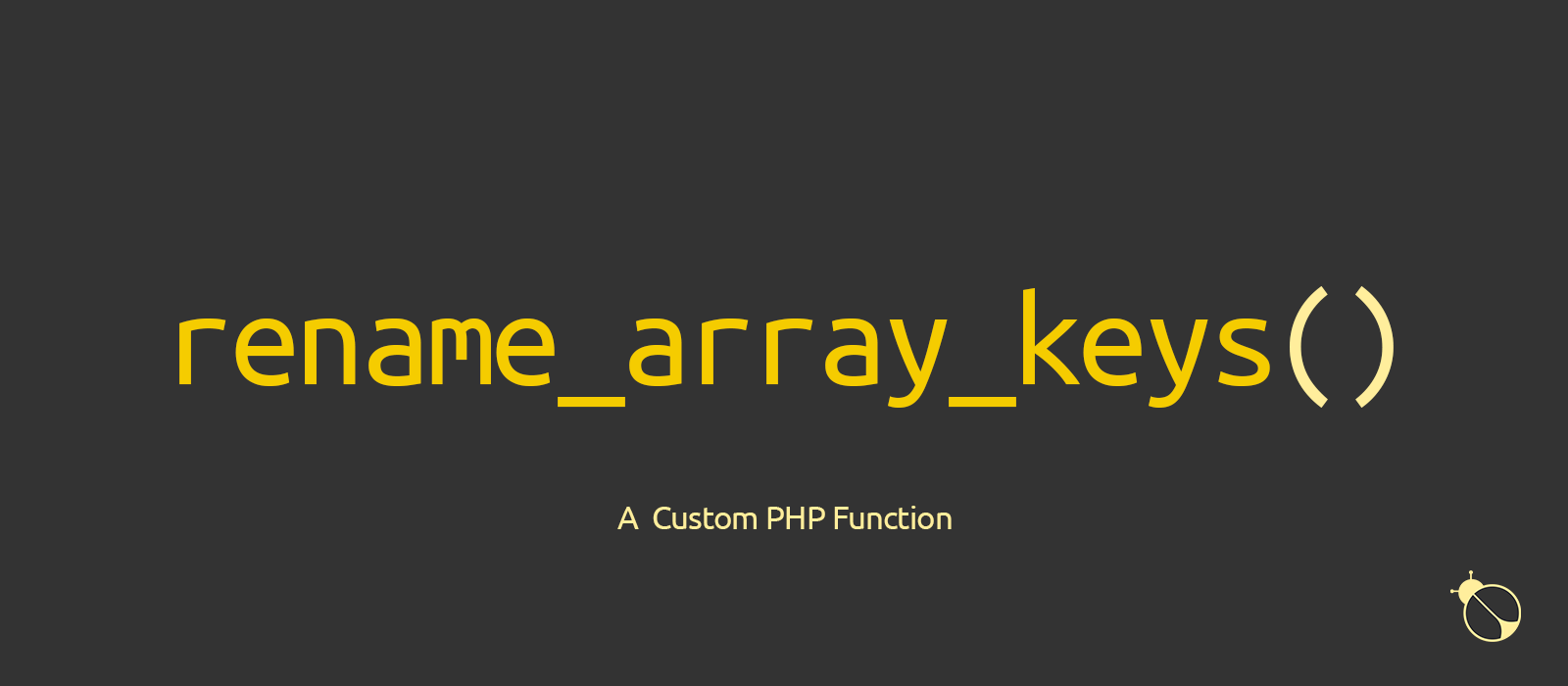A Custom PHP Function to Rename the Keys of an Element of a Multidimensional Associative Array While Preserving Elements' Order
When you want to rename a key without causing the elements of a multidimensional associative array to shuffle, native PHP functions alone aren't enough. Creativity has to absolutely come into play.

Renaming a key of an associative array in PHP is not a matter of magic, usually we can do it by assigning the value associated to the old key, to a new key, and unsetting the old element. But things complicate slightly when we want to rename a key without causing the elements of the array to shuffle. In such a case, native PHP functions alone aren't enough. Creativity has to absolutely come into play.
The solution I want to share with you is a procedural function that by knowing the new keys, and the keys to rename, it uses recursion to traverse a given multidimensional associative array and return a brand new array having all the elements in their original positions and the target element featured by the new keys.
The function is the following:
1/** 2 * Renames one key, or a hierarchy of keys, 3 * of an element of a multidimensional associative array. 4 * 5 * @param array $array 6 * @param array $old_keys Hierarchy of keys to rename. 7 * @param array $new_keys Hierarchy of replacement keys. 8 * It must have the same 9 * number of elements of $old_keys. 10 * @return array 11 */ 12function &rename_array_keys( &$array, $old_keys, $new_keys ) { 13 $new_array = array(); 14 15 // With each recursive call we extract one key 16 // from each of the two arrays of keys. 17 $old_key = array_shift( $old_keys ); 18 $new_key = array_shift( $new_keys ); 19 20 foreach ( $array as $key => &$value ) { 21 // When this check succeeds it means that 22 // we have found the key to rename. 23 if ( $key === $old_key ) { 24 if ( 25 // When $old_keys and $new_keys still contain 26 // elements it means that we are renaming 27 // a hierarchy of keys, not just a single key. 28 $old_keys && $new_keys && 29 30 // Ensures that the recursive call is triggered 31 // only if $value is an array and actually 32 // contains the next key to rename ( $old_keys[0] ). 33 isset( $value[$old_keys[0]] ) 34 ) { 35 $new_array[$new_key] = rename_array_keys( $value, $old_keys, $new_keys ); 36 } 37 else { 38 $new_array[$new_key] = $value; 39 } 40 } 41 else { 42 $new_array[$key] = $value; 43 } 44 } 45 46 return $new_array; 47}In the event you rename the function when you include it into your code, don't forget to edit the recursive call!
Exemplification
Suppose you have the following multidimensional associative array...
1$dictionary = array( 2 'a' => 1, 3 'b' => array( 4 'x' => 22, 5 'y' => 23, 6 'z' => 24 7 ), 8 'c' => 3 9);...and you want to rename the keys of the element $dictionary['b']['z']. The function should be called like this:
1$dictionary = rename_array_keys( $dictionary, array( 'b', 'z' ), array( 'green', 'blue' ) );The resulting array will be this one:
1array(3) { 2 ["a"] => int(1) 3 ["green"] => array(3) { 4 ["x"] => int(22) 5 ["y"] => int(23) 6 ["blue"] => int(24) 7 } 8 ["c"] => int(3) 9}